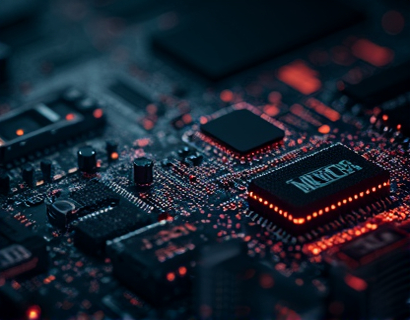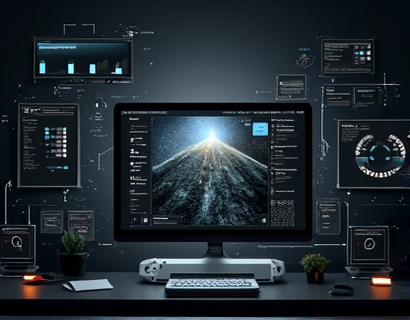Elevate Your Event Performance: Expert Software Solutions for Entertainment and Event Professionals
In the dynamic world of entertainment and event management, staying ahead of the curve is crucial for success. The industry is constantly evolving, with new technologies and tools emerging to help professionals streamline their workflows and enhance audience engagement. This article delves into the advanced software solutions designed specifically for entertainment and event professionals, focusing on how these tools can transform the way events are managed and performed.
The primary goal of any event is to deliver an exceptional experience to the audience. However, the path to achieving this goal is often fraught with challenges, from managing complex bookings and promotions to ensuring seamless communication with fans. Advanced software solutions are revolutionizing the industry by providing comprehensive tools that address these challenges head-on. These solutions are not just about efficiency; they are about elevating the entire event experience, from behind-the-scenes operations to the final moments of audience engagement.
Streamlining Workflows with Advanced Software
One of the most significant benefits of adopting advanced software solutions in event management is the ability to streamline workflows. Traditional methods of managing events often involve manual processes that are time-consuming and prone to errors. With software designed for event professionals, these processes can be automated, reducing the risk of mistakes and freeing up valuable time for more critical tasks.
For instance, event management software can handle everything from ticketing and registration to scheduling and logistics. Booking systems integrated into these platforms allow performers and vendors to manage their schedules effortlessly, reducing the back-and-forth communication typically required. This not only saves time but also ensures that all parties are on the same page, minimizing misunderstandings and conflicts.
Moreover, these platforms often include project management tools that enable event organizers to assign tasks, set deadlines, and track progress in real-time. This level of visibility and control is invaluable, especially for large-scale events with multiple moving parts. By centralizing all aspects of event planning and execution, software solutions provide a clear and organized approach to managing even the most complex events.
Enhancing Audience Engagement
Audience engagement is the lifeblood of any successful event. In today's digital age, audiences expect more than just a passive experience. They want to be involved, interact, and feel connected to the event and its performers. Advanced software solutions offer powerful tools to foster this level of engagement, creating a more immersive and memorable experience for attendees.
One key feature is the integration of social media and mobile applications. Event apps can be customized to provide attendees with a personalized experience, including schedules, maps, and real-time updates. These apps can also facilitate interaction through features like live polls, Q&A sessions, and social sharing options. By encouraging audience participation, event organizers can increase engagement and create a more dynamic atmosphere.
Another innovative approach is the use of augmented reality (AR) and virtual reality (VR) technologies. These immersive experiences can transport audiences into the heart of the event, offering unique perspectives and interactions that traditional methods cannot match. For example, AR can be used to enhance performances with digital effects, while VR can provide virtual tours or backstage experiences, giving attendees a deeper connection to the event.
Effortless Promotion and Marketing
Promoting an event effectively is crucial for its success, and advanced software solutions offer robust marketing tools to help event professionals reach a wider audience. From creating visually appealing promotional materials to leveraging data-driven insights for targeted marketing campaigns, these tools provide a comprehensive approach to event promotion.
Design tools integrated into event management software allow organizers to create professional-grade graphics, flyers, and social media posts without needing extensive design skills. These tools often come with templates and design elements specifically tailored for events, ensuring consistency and brand alignment.
Data analytics is another powerful feature of modern event software. By analyzing historical data and real-time metrics, organizers can gain valuable insights into audience behavior and preferences. This information can be used to tailor marketing strategies, optimize ticket pricing, and even predict attendance patterns. Understanding the data helps in making informed decisions that can significantly boost ticket sales and overall event attendance.
Connecting with Fans and Building Loyalty
Building a strong connection with fans is essential for the long-term success of any event or performer. Advanced software solutions provide tools to nurture these relationships, fostering loyalty and ensuring a steady stream of supporters for future events.
Email marketing platforms integrated into event management software enable organizers to create and send personalized communications to their audience. From exclusive updates and behind-the-scenes content to special offers and reminders, these emails can help keep fans engaged and excited about upcoming events.
Fan management tools also allow organizers to collect and analyze feedback, providing valuable insights into what attendees enjoy and where improvements can be made. This feedback loop helps in refining the event experience and addressing the needs and desires of the audience, ultimately building a loyal fan base.
Social media integration is another critical aspect of fan connection. By linking social media accounts to the event platform, organizers can share content seamlessly and encourage fans to engage with the event on multiple platforms. This not only increases visibility but also creates a community around the event, where fans can connect, share experiences, and build anticipation.
Ensuring a Seamless Experience from Start to Finish
The true power of advanced software solutions in event management lies in their ability to provide a seamless experience from the initial planning stages to the final moments of the event. Every aspect, from booking and promotion to execution and follow-up, is interconnected and optimized for efficiency and effectiveness.
For performers, managing bookings and contracts can be a complex task. Software solutions offer contract templates and negotiation tools that simplify the booking process, ensuring that all terms are clearly outlined and agreed upon. This reduces the risk of disputes and ensures a smooth collaboration between performers and event organizers.
During the event, real-time monitoring and management tools help organizers keep everything running smoothly. From tracking attendance and managing stage schedules to handling unexpected issues, these tools provide the necessary support to address any challenges that may arise. This level of control is crucial for maintaining the high standards expected by audiences and performers alike.
Post-event, software solutions continue to play a vital role. Comprehensive reporting and analytics tools allow organizers to evaluate the success of the event, identifying areas for improvement and measuring key performance indicators. This data-driven approach ensures that each subsequent event is better than the last, fostering continuous improvement and growth.
Unlocking New Possibilities for Event Professionals
The adoption of advanced software solutions in event management opens up a world of possibilities for professionals in the industry. By leveraging these tools, event organizers can focus more on creativity and innovation, knowing that the operational aspects are handled efficiently and effectively.
For event planners and managers, these solutions provide a competitive edge, enabling them to deliver high-quality events with greater ease. The ability to manage multiple projects simultaneously, communicate effectively with stakeholders, and analyze data to make informed decisions sets a new standard for excellence in the industry.
Moreover, the flexibility and scalability of these software solutions mean that they can adapt to various event types and sizes, from intimate gatherings to large-scale festivals. Whether you are organizing a small concert or a major international event, the right software can help you achieve your goals and elevate your professional capabilities.
In conclusion, advanced software solutions are not just a luxury but a necessity for modern event and entertainment professionals. By embracing these tools, professionals can streamline their workflows, enhance audience engagement, promote events more effectively, and build lasting relationships with fans. The future of event management is here, and it is powered by innovation and technology.











































